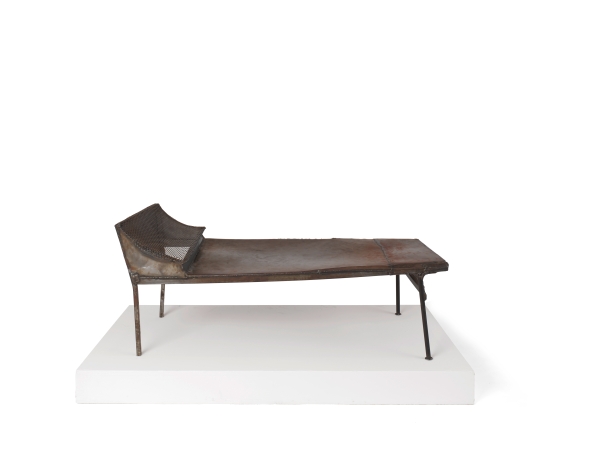Related to this context are the
phenomena of therapeutic self-reflection and its capitalistic exploitation, which have persistently accompanied the social
changes of the 20th and 21st centuries. As sociologist Eva Illouz traces in her book Saving the Modern Soul: Therapy, Emotions,
and the Culture of Self-Help (2008), this “emotional style” emerged in the interwar period in the course of a modification
of Sigmund Freud’s theories via the American culture of ego psychology. Today, creativity plays a fundamental role in processes
of subjectivation and navigates the tension between personal desires and social expectations, between longing and imperative.
Cultural sociologist Andreas Reckwitz also speaks of an “ideal of creativity” in this context.
Atmospherically,
the exhibition title
Ins Dunkle schwimmen [
Swimming into the Dark] refers less to an ominous unknown but
rather to the deep waters, dangerous currents, and at times dark abysses of self-doubt and perceived inadequacy that are closely
associated with creativity. Where post-pandemic trauma coping strategies often only offer individualizing self-care instead
of communal care and the ecological, social and political crises are intensifying, (self-) exploitation relationships are
becoming increasingly existential.
This dialectic of creative self-optimization, self-care, and self-exploitation,
in turn, is closely related to models of artistic subjectivation. As “self-designers” par excellence, artists have been the
prototypes of the creative existence that has now become a job requirement for all members of society. Distorted in this way,
the modernist idea of the “freedom of art” turns out be a paradox and a dilemma, in which the notion of artistic-creative
self-expression becomes the “enemy within”; or, on the other hand, a principle to be circumvented through consciously chosen
passivity or collective action. Conversely, given the increasing automation of creative practice, the fundamental question
of responsibility for and the definition of artistic work arises anew.
The exhibition
Ins Dunkle schwimmen
gathers works of art that deal with these contradictory demands in the context of artistic production, encountering abysses
and limits in the process. On the one hand, it includes works from the Collection of the University of Applied Arts Vienna
that open up the fiction of the “autonomous work of art” to re-negotiation. On the other hand, it features works that inquire
into the conditions of the production of the self, explore the relationships between artistic production and work on one’s
own life, and search for exit strategies from the instrumentalization of the pathos of creativity and freedom.
Curated
by Cosima Rainer and Robert Müller
Curatorial Assistance: Laura Egger-Karlegger and Manon Fougère
Exhibition
Management: Judith Burger, Laura Egger-Karlegger and Manon Fougère’
Exhibition Design: Robert Müller
Exhibition
Office University Gallery
Anette Freudenberger
Opening hoursWed – Sat: 2–6 p.m. (closed
on holidays)
Entrance is free of charge!
More
information



